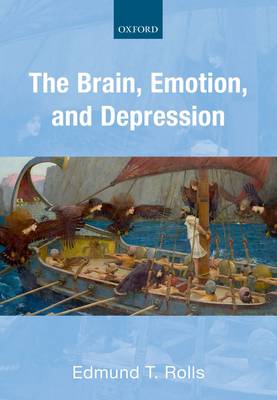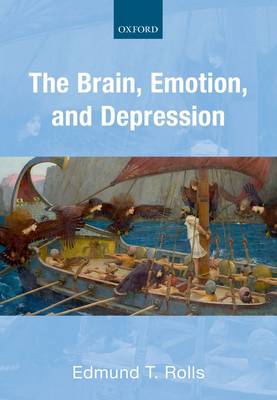
- Afhalen na 1 uur in een winkel met voorraad
- Gratis thuislevering in België vanaf € 30
- Ruim aanbod met 7 miljoen producten
- Afhalen na 1 uur in een winkel met voorraad
- Gratis thuislevering in België vanaf € 30
- Ruim aanbod met 7 miljoen producten
Zoeken
Omschrijving
There are myriad questions that emerge when one considers emotions and decision-making: What produces emotions? Why do we have emotions? How do we have emotions? Why do emotional states feel like something? What is the relationship between emotion, reward value, and subjective feelings of pleasure? How is the value of 'good' represented in the brain? Will neuroeconomics replace classical microeconomics? How does the brain implement decision-making? Are gene-defined rewards and emotions in the interests of the genes? Does rational multistep planning enable us to go beyond selfish genes to plans in the interests of the individual? The Brain, Emotion, and Depression addresses these issues, providing a unified approach to emotion, reward value, economic value, decision-making, and their brain mechanisms. The evolutionary, adaptive value of the processes involved in emotion, the neural networks involved in emotion and decision making, and the issue of conscious emotional feelings are all considered. The book will be valuable for those in the fields of neuroscience, neurology, psychology, psychiatry, biology, animal behaviour, economics, and philosophy from the advanced undergraduate level upwards, and for all interested in emotion and decision-making.
Specificaties
Betrokkenen
- Auteur(s):
- Uitgeverij:
Inhoud
- Aantal bladzijden:
- 336
- Taal:
- Engels
Eigenschappen
- Productcode (EAN):
- 9780198832249
- Verschijningsdatum:
- 12/09/2018
- Uitvoering:
- Hardcover
- Formaat:
- Genaaid
- Afmetingen:
- 173 mm x 239 mm
- Gewicht:
- 798 g

Alleen bij Standaard Boekhandel
+ 164 punten op je klantenkaart van Standaard Boekhandel
Beoordelingen
We publiceren alleen reviews die voldoen aan de voorwaarden voor reviews. Bekijk onze voorwaarden voor reviews.







